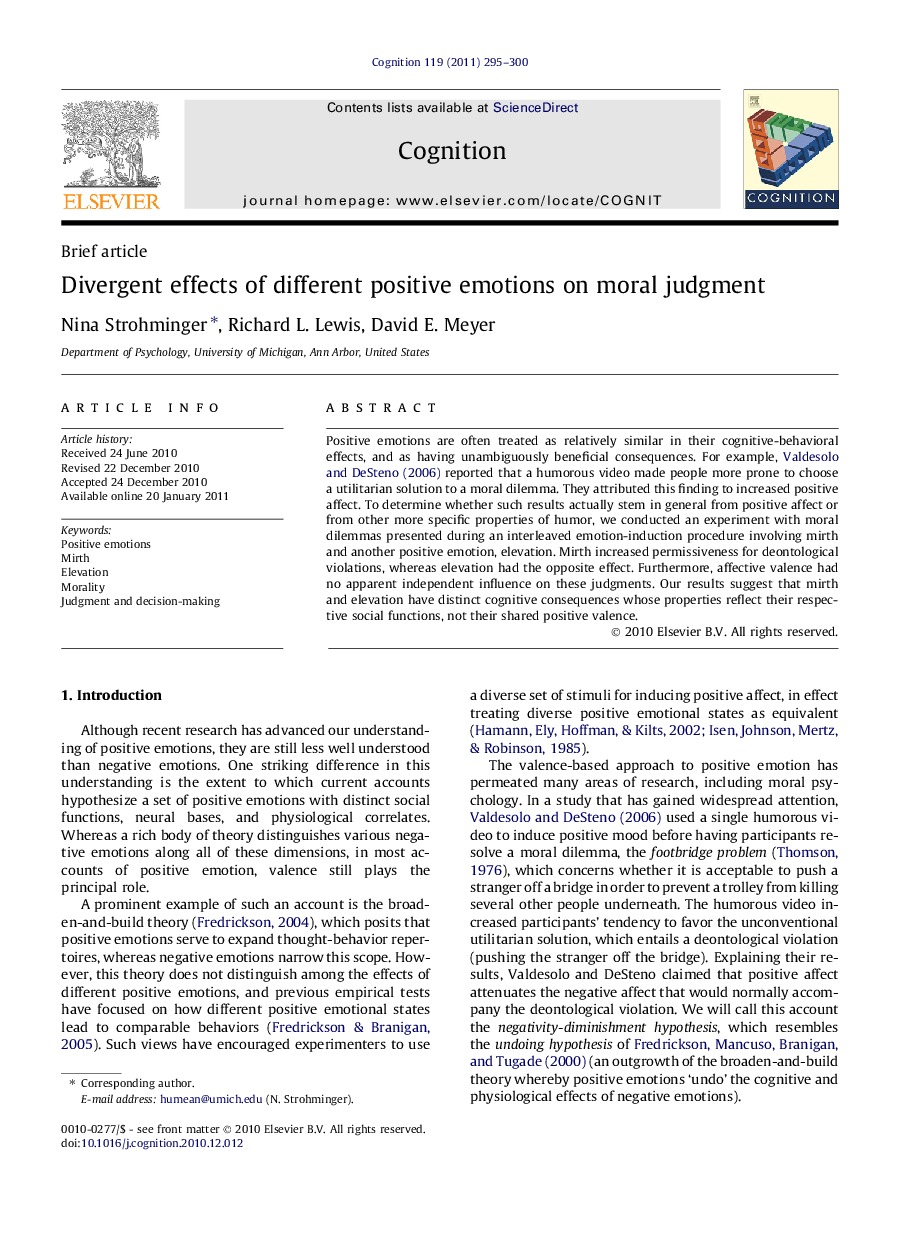| Article ID | Journal | Published Year | Pages | File Type |
|---|---|---|---|---|
| 926581 | Cognition | 2011 | 6 Pages |
Positive emotions are often treated as relatively similar in their cognitive-behavioral effects, and as having unambiguously beneficial consequences. For example, Valdesolo and DeSteno (2006) reported that a humorous video made people more prone to choose a utilitarian solution to a moral dilemma. They attributed this finding to increased positive affect. To determine whether such results actually stem in general from positive affect or from other more specific properties of humor, we conducted an experiment with moral dilemmas presented during an interleaved emotion-induction procedure involving mirth and another positive emotion, elevation. Mirth increased permissiveness for deontological violations, whereas elevation had the opposite effect. Furthermore, affective valence had no apparent independent influence on these judgments. Our results suggest that mirth and elevation have distinct cognitive consequences whose properties reflect their respective social functions, not their shared positive valence.
